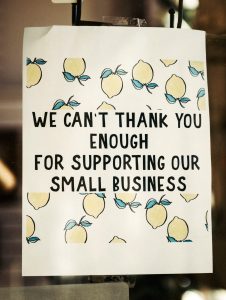by Lee Van Ham
For a clear definition of local economies see The Sustainable Business Toolkit website (https://www.sustainablebusinesstoolkit.com/local-economies-community-development-social-capital/).
Local economies refer to economic and social systems that are part of a specific community.
For example, a typical local economy may have residents who dine at a local independent restaurant. The restaurant employs residents from the community and buys goods and services from other local businesses. They purchase ingredients from local farms or suppliers, use a local law or insurance firm, and hire local musicians to play live music on the weekends.
A circular economy prevails, which benefits the community, the residents, and the environment.
Local economies include different sectors and industries that work together to contribute to local wealth creation, opportunities, and prosperity.
Typically, we make purchases based on certain criteria. “Where is it cheapest?” or “What is most convenient?” and others. But what if we trained ourselves to ask first: “What is the most local?” “How can I support the local economy and also make real change in the world?” After making local our priority, then other questions can follow.
There are compelling reasons for making local our priority. The motto “Think global; buy local” urges us to increase our awareness of what the global economy, chains, and corporations do. With that understanding, we can go the opposite direction—head toward OneEarth living by acting and buying locally.
- Our support of local economies is, in fact, a spiritual practice. As you consider the following reasons for going local, also notice the inherent spirituality involved in working for a socio-economic community that cares for workers, citizens, environment, education, governance—all of it. The interrelatedness of local, the friendships, the financial investment and stewardship of resources—all of these and more result in something greater than the actions themselves. That something greater is a gift, a grace beyond our control, a mystery connecting greater powers with our souls. Local economies are a spiritual path for many religions. That includes living by the Judeo-Christian narratives.
- Environmentally, local economies make every day Earth Day. They are more sustainable and use fewer resources from creation to give people what they need. One reason is that far less energy is used for transportation of goods.
- Wealth stays in the community, empowering us in our quest for well-being. Of money spent locally, two-thirds stays in the community. By contrast, when we depend on large corporations to drive area economies, our communities get hollowed out by the extractive, centralizing practices of these corporations. Money spent at Walmart, for example, is out of the community before the next day. It empowers shareholders and executives, but not local citizens. For every job Walmart brings to a community, 1.5 jobs are lost in the local economy. Furthermore, these jobs do not show great care for their workers. Local businesses are more likely to care for their workers and community.
- The weaknesses in a globalized economy are coming to light every day in areas like ecological collapse and supply chain deficiencies. But correcting these breakdowns is overwhelmingly huge. How, then, can we impact such a behemoth? The best strategy is to localize. Localizing is so effective that chain stores often have signage about all they buy locally and all they do for the local community. These efforts, nonetheless, pale compared to what locally-owned businesses do.
- Every day we experience the impersonal nature of marketplace transactions. As employees give us friendly greetings and bid us goodbye with wishes to have a good day, we feel the strained efforts to be personal. But, in fact, it reinforces the feeling of disconnection from the people with whom we are engaged in this transaction. In locally owned businesses we can get to know workers and owners. We may get to a first-name basis. In many cases, they come to know our situations and take genuine interest. Caring is human and makes local businesses and communities stronger. It contrasts sharply with the need to compete for the greatest profit. Such competition will likely satisfy shareholders, but destroy well-being in communities and life across the planet’s bioregions.
These are ways the OneEarth Jubilee story is continually lived in daily life. Fostering and supporting it brings real change.
Photo by Tim Mossholder on Unsplash





